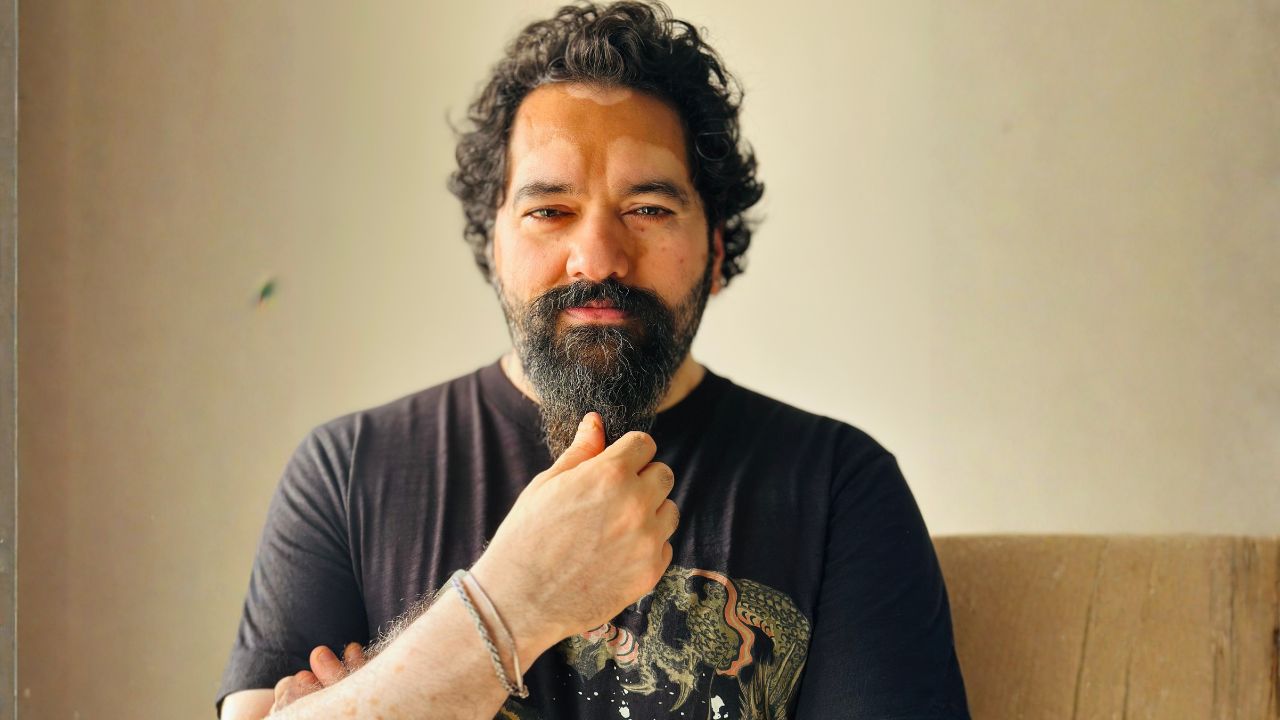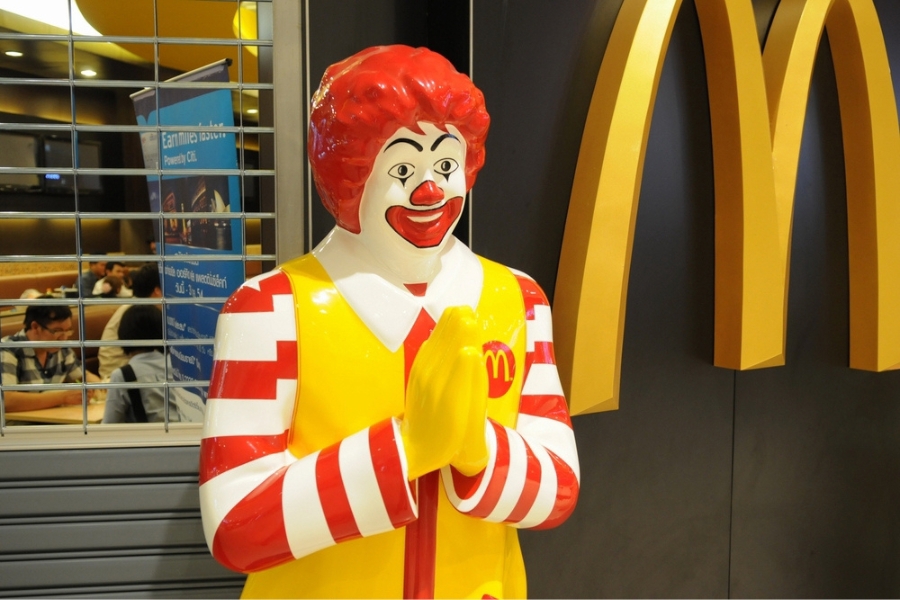Forsman & Bodenfors (F&B) may be a small shop, but its status as a creative powerhouse is nothing to cast off. It’s telling that its ‘epic split’ ad for Volvo would garner cult-like admiration, often hailed as one of the best of all time.
But at the agency’s year-old Singapore office, the phones are not always ringing.
“In Sweden [we are] a household name; any marketer knows what we stand for,” Guy Hayward, global CEO, tells Campaign Asia-Pacific. “Here, we have to go out and tell our story and establish connections. We have to start from scratch, we have to rewind the story.”
Carving a creative niche
F&B is known for its highly creative work, and Hayward acknowledges that “it’s not for everybody”.
“We're not here to educate, but we are selective about which clients we work with," he says. "So we're talking to lots of people who think the way we think, they’re the ones we like to work with. We're not for everybody, because not everybody wants what we do. So I think we're not kidding ourselves that we can educate the whole region—that’s not our mission.
“And we don't we don't have these huge targets where we've got to grow 80% per annum or anything like that; we do have a degree of freedom to be selective. And everyone talks about P&L. We just have one number we've got to write take up to our owners. So it makes it a lot simpler.”
Does this “freedom” also translate to more creative liberty?
“Well, it's what we live for, and it's what people buy us for," he says. "So it becomes an obligation to be hugely creative. The way we are operating in this region is that we're not necessarily seeking to be the sole agency for a client. You know, sometimes it's simply about taking one or two or three projects. We haven't got the plumbing around the region.”
Susanna Fagring, CEO at F&B Singapore, says: “This is our first year [in Singapore] and we've been focusing a lot on setting things up and finding the right people. We've been fully embracing the first phase and focusing on our biggest client.”
F&B’s biggest client in the region is SK-II for P&G, which led to the Singapore office being set up. Other clients (between Singapore, Shanghai and global offices) include luxury watch brands Piaget and Jaeger-LeCoultre, Haagen-Dazs, and Oppo.
One of the perks of being a small outfit is also the ability to simply pick up the phone to collaborate with their global counterparts, or if extra help is needed.
“We've all worked in big networks. I know they tend not to like to work together but we have fostered an environment in which people do want to work together. And that’s partly because we’re small, and we know we need each other's help,” says Hayward.
Fagring, who moved from F&B’s hometown of Gothenburg to helm the Singapore office, says that she’s continually surprised by the pace and scale of the region.
“I am amazed by how quickly things change here. It's just fantastic. And to me, it comes back to the diversity of the region. You have a large group of people with different backgrounds, different preferences, different stories, and there’s a huge energy in this region to embrace change,” she says.
However, this pace is not always ideal for an agency that heralds creativity over purely measurable insights.
“We're fairly new to the region, but generally speaking, I would say the goals here are a bit more short-term. People here are keen to see quicker results and clear proof of success. And I think it's a consequence of a fast-moving environment,” says Fagring.
“I would say the challenge is to find a good balance between the long-term goals and the short-term goals. Because at the end of the day, if you want to connect with people, you need to give that relationship a bit of time. That magic doesn't happen in one day.”
Both Hayward and Fagring say a six-week pitch process in the US might take three weeks in Asia, or a decision that takes three days in the US might take two hours in the latter.
However, Fagring says that the openness of the Asian market to try new things is unparalleled. “The curiosity to do things differently is really strong in this region. Generally speaking, I feel people are more open to try out new things.”
Her role is then is to keep a close ear to the ground. “No matter where you are in the world, you really need to know where you're talking to, and you need to do your homework. In terms of local insights, that has also been always been our approach—we talk to the consumers. And we look for these authentic insights that can generate a really good idea,” she says.
“When we are completely humble and open-minded in these conversations, you find new creative territories and new insights. Magic can come out of that.”
Is Asian work more award-worthy than ever before?
Absolutely, according to Hayward. While some may think that work out of Asia is safe or more conventional, Hayward waves it off as a misconception.
“I do think there’s that perception [about Asian work], and I think it's unfair. It’s probably spread by Western creative directors and it's totally unfair. And yet, when I’m sitting at home and watching ads on TV in New York, it's pretty appalling. There’s crap everywhere,” he says.
“As a Westerner, I'm embarrassed that the West has spent so much time prejudicing against non-Western work.”
His sentiment extends to a lack of international awards attention for Asian work, and points to the lack of diversity on juries and decision-making positions as a factor.
“You hear all sorts of horror stories about how countries and agencies gang up [against the underdogs]. Generally, yes, award shows do recognise the best work but I'm sure there's still prejudice,” he says.
“However, it seems to be changing. Cannes [Lions] seems to be making huge efforts to be more inclusive. But yes, there's definitely a foolish Western snobbery about the rest of the world.”
This ‘Western-washing’ also limits how judges measure Asian work, he adds.
“Is it because the Western judges aren't trying to understand how TikTok works in China? They can't be bothered to understand whether this is good or bad,” he says.
“We’re dealing with a massive cultural shift happening in the world and it may well be that the creative community hasn't quite caught up. You know, I think it's great to have award shows focusing on Asia like Spikes, it’s really important.
“We were joking the other day about how if you work in Asia, you’re the one working nine o'clock in the evening for the sake of New York. We will know when the world shifts to be more balanced when it's us in New York taking calls at a really inconvenient time. It’s only the smart companies that are operating in a truly global way.”
On more brands shifting towards purpose-based marketing, Hayward says that brands first need to understand why they exist in the first place.
“If your brand makes a snack, the snack was not created to save the world. It might have been created to give you a nice moment of nourishment in the day. That's their purpose,” he says.
“That's something we get a little nervous about—telling brands that they were not built to save the world. Once the brand figures out why it exists, it can figure out relevant ways of being activists.”
(This article first appeared on CampaignAsia.com)




